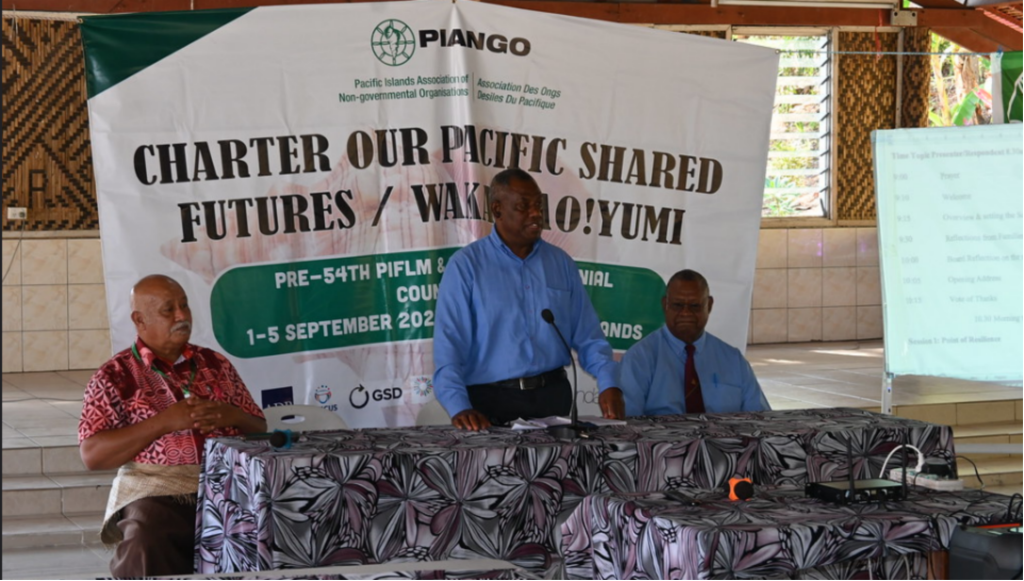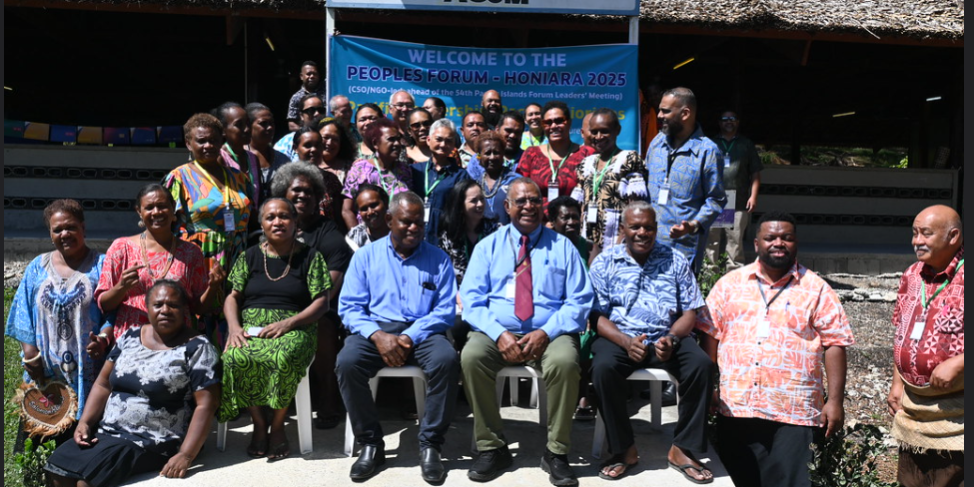The Pacific Islands Association of Non-Governmental Organisations (PIANGO) Council opened its three days triennial meeting in Honiara on Monday the 01st of September 2025.
The event is bringing together representatives from National Liaison Units (NLUs) across the Pacific to chart a course for the future of civil society in the region, focusing on building solidarity among its network, celebrating the achievements of each member in their respective countries, and learning from the foundational stories of each NLU.
PIANGO Executive Director, Emeline Ilolahia, in her welcoming remarks, reiterated the importance of a people-centred approach in navigating the challenges of modern geopolitics, the need for a deep understanding of Pacific cultures, values, and history to ground the work of the network.
Ilolahia emphasised that this Council was special because it was here in the Solomon Islands, that the idea to have a regional network of NGOs, later to become PIANGO, was born.
While this week’s deliberations will build upon PIANGO’s priorities and positions submitted during its last meeting in 2022, on the 2050 Strategy for a Blue Pacific Continent and for Australia’s new international development policy, of which NLUs had called for development programs that facilitate locally led approaches to achieving systems transformation, sustainable and inclusive development and poverty reduction.
The deliberations centred on the theme “Charter our Pacific Shared Futures/Waka Nao! Yumi Tugeta”, remains core to PIANGOs commitment on local leadership and community empowerment.
Chief Guest William Atu, Premier of the Guadalcanal Province showed his appreciation of the opportunity to gather and talk about a shared future, emphasising the relevance of the theme, that marks a demand to action.

PIANGO’s Deputy Chair, Drew Havea used the biblical story of Moses in its work leading the Israelites out of Egypt on the importance of purpose and self-awareness, to set the tone for the week’s discussions with a powerful call for civil society to be “fearless”.
He urged participants to draw strength from their shared history and culture. He likened the challenges faced by civil society-a space that is “getting constricted”-to the story of Moses, who, in the beginning, “didn’t know who he was.”
This, Havea suggested, is an opportunity for civil society to embark on a journey of self-discovery, asking critical questions to understand its own identity and purpose.
He challenged the PIANGO Kainga to put aside personal concerns and focus on the greater good.
“Don’t think of yourself or what comes after,” he said, “we need to keep that thought in place as we work through the week.”
“Without a solid connection to our past and a profound respect for those who came before us, we risk losing our way,” Drew Havea, PIANGO Deputy Board Chair stated, drawing an analogy to the story of Moses
The PIANGO Council which occurs every three years, serve as a critical platform to review the roles of national umbrella platforms and PIANGO as a regional body will address critical issues facing the Pacific, share best practices, and strengthen the collective influence of NGOs in the region.
As a lead up to the Peoples Forum that will be hosted by Solomon Islands Civil Society and following week’s CSO engagement during the 54th Pacific Island Leaders Meeting, members of PIANGO Council host, the Development Services Exchange were also present.









